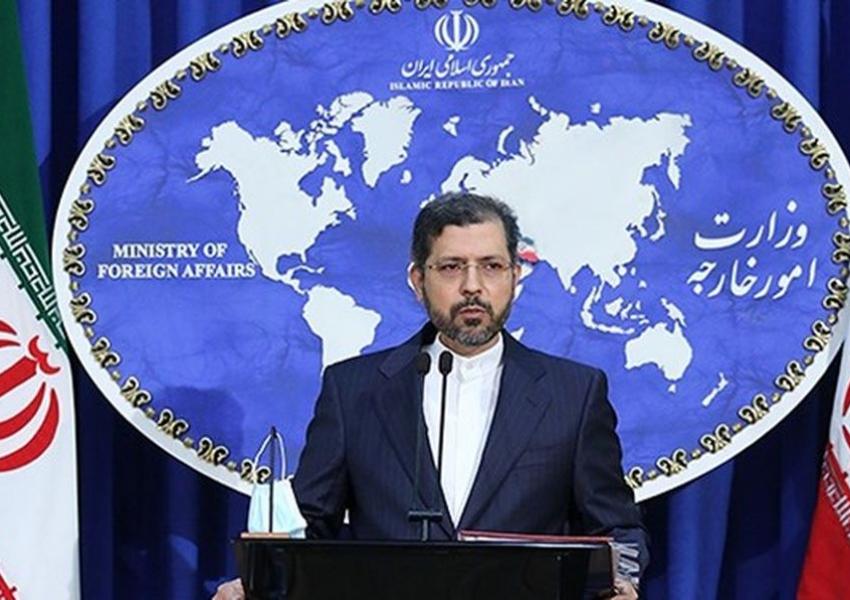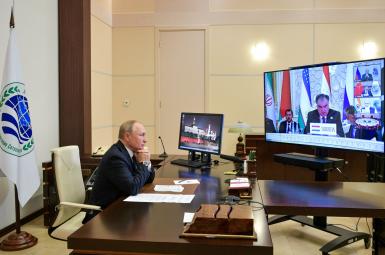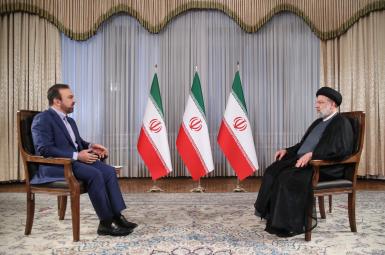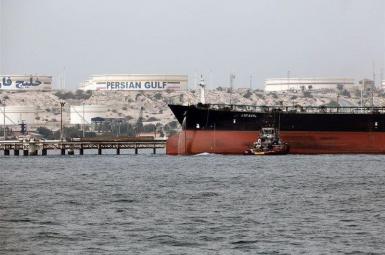
Iran Adamant About Persian Gulf Security, Says Spokesman
Speaking during his first weekly media briefing after Islamic Republic’s new president Ebrahim Raisi assumed office, the foreign ministry spokesman Saeed Khatibzadeh on Monday reiterated that "the security of the Persian Gulf is Iran's red line," and that "Tehran will do its best to keep the waterway safe from the insecurity created by countries such as the United Kingdom."
Khatibzadeh’s remark was probably aimed the US and UK initiative to form an international consensus against Iran after the July 29 attack on an Israeli-managed ship near the Omani coast. Following the G-7 statement condemning Iran for the attack on Mercer Street, Israeli Prime Minister Naftali Bennett said on Sunday that "Issuing statements against Iran is not enough," and "It is time now for action."
Bennett however, thanked the G-7 for the statement and said he was happy about the CENTCOM report that asserted the remnants of the drone used in the attack indicated it belonged to Iran.
Khatibzadeh denounced the G-7 statement as "baseless" and "not acceptable by the Iranian people." He said that Iran as one of the pillars of security in the region has always contributed to the restoration of peace in the Persian Gulf. Meanwhile, he accused Israel of sponsoring terror in the region and in international waters while enjoying the support of some other countries.
He added that Iran will never remain silent in the face of threats against the security of its commercial ships.
Asked to comment on a statement made by the UK Foreign Secretary Dominic Raab about his concern over security of commercial shipping in the Persian Gulf, Khatibzadeh said: "Anti-Iranian statements by UK officials are not new. This is just one of the irresponsible comments made by UK officials against Iran during the past years."
Dominic Raab said last week that “all the evidence” points to Iran being responsible for a drone attack on a ship in the Middle East which left a British citizen dead. He also added that the UK's Foreign Office believes the strike on the oil tanker off the coast of Oman was “deliberate, targeted, and a clear violation of international law by Iran”.
Khatibzadeh however added: "We share only one thing with the British Foreign Secretary and that is our concern about the security of commercial shipping in the Persian Gulf."
Khatibzadeh spoke about the latest developments in talks between Iran and Saudi Arabia. "Both sides had to tackle significant topics. We in Iran believe that we can reach to a common understanding about major issues through dialogue,” he said and stressed, "We believe we can get good results if Saudi Arabia pays due attention to Iran's message about resolving regional issues solely through regional initiatives." Khatibzadeh's remark was based on an Iranian initiative launched in 2019 which called on the United States to stay out of regional efforts to restore peace and security.
He also announced that the Iraqi Foreign Minister Fuad Hussein will visit Iran later this week, however, it is too early to comment about the message he is carrying for Iran's new president. The IRGC Qods Force's Telegram channel reported that Iraqi sources said earlier Hussein will invite President Ebrahim Raisi to take part in a security meeting in Baghdad with officials from Iraq, Turkey and Saudi Arabia.
Meanwhile, Khatibzadeh said that Iran was prepared to help resolve the Yemeni crisis, but "we regret that Saudi Arabia still believes in a military solution." During the past week, Raisi has said repeatedly that trying to improve ties with regional states and neighboring countries is his foreign policy priority. However, it is not clear whether he said this to undermine the importance of ties with the United States and restoration of the 2015 nuclear deal, or this is what he genuinely believes in.








